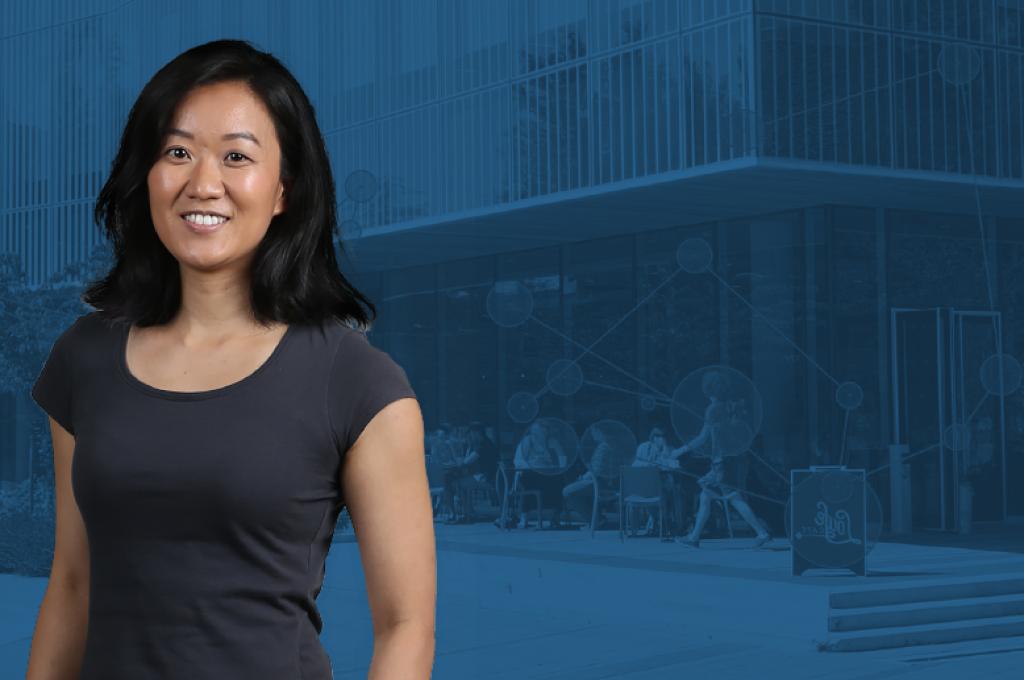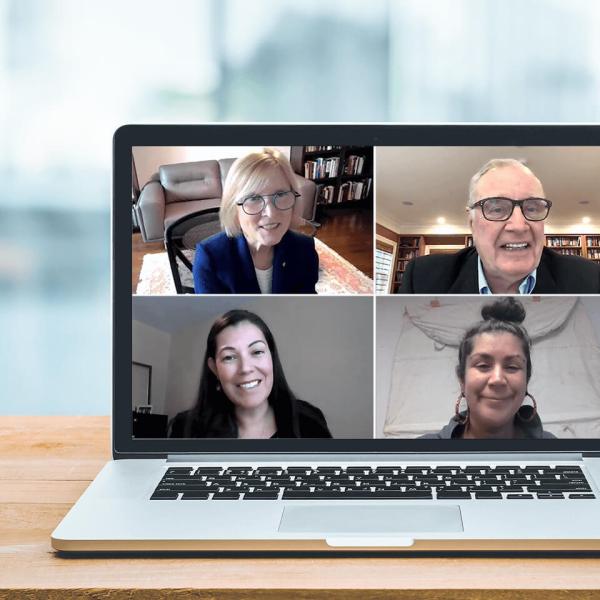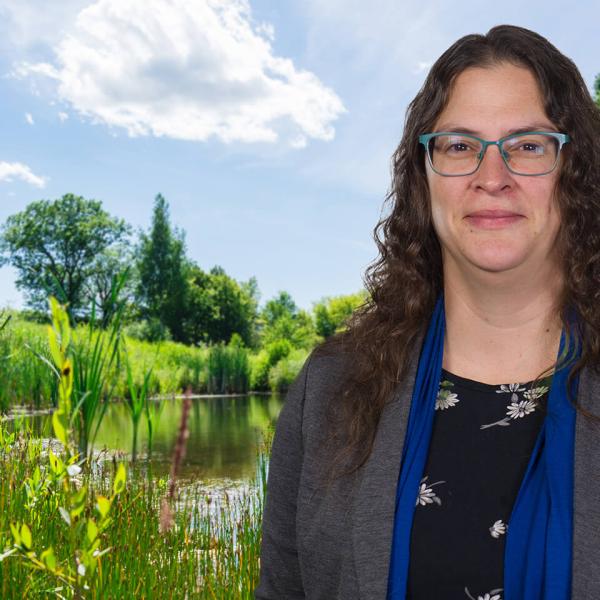How does a first-year university student’s Facebook feed influence their feelings of social connection and belonging? Can a stressful situation be buffered by smelling the scent of a loved one? What impact does our social media use have on our sleep quality?
Those questions — and many more — are being examined inside Frances Chen’s Social Health Lab at the University of British Columbia.
Chen’s research explores the intersection of social psychology and health psychology, linking our social lives (and, increasingly, our online social lives), mental health and physical health.
“I’ve always been fascinated by this question of how events that happen outside of our bodies, like interactions with other people, get under the skin to influence what’s happening inside our bodies,” says Chen, who is Assistant Professor of Psychology at UBC.
Chen’s Social Health Lab, which is equipped with sophisticated equipment to collect high-quality data on both psychological and physiological reactions, is designed to answer just those kinds of questions.
A past study in the Social Health Lab, for example, examined how university students respond to different content on Facebook. Students were shown real Facebook profiles that had been curated, either to be very social in nature (think lots of party pictures and photos of big groups of smiling people) or to be non-social (think a user posting photos of food or nature). Chen and Ashley Whillans, a PhD student in the lab, wanted to know how scrolling through those profiles would influence the viewer’s feelings of belonging at university.
The researchers found the answer depended on what year of university the student viewing the profile was in. First-year students were “especially vulnerable” to the social profiles and felt less of a sense of belonging at university when they saw what appeared to be very social peers. Older students, however, seemed less susceptible to those feelings.
“When people have just arrived in a new social environment and are trying to figure out whether and how they fit in, they might respond differently than someone who has already established themselves in a community,” Chen says.
Think your peers’ social lives are buzzing while yours is fizzing out?
Listen to Chen’s explanation of why this misperception is so common.
What do you do in the middle of night? Your phone knows.
Chen is also working with Christine Anderl, a postdoctoral fellow from Germany who moved to Canada last year to work with Chen, on a set of studies involving an important health measure: sleep quality. They’re developing a smartphone app that they hope will eventually function like a scientific-grade sleep watch, but at a fraction of the cost — creating a much more scalable tool for research.
The app records “interesting data that your phone is collecting in the background anyway,” Chen says, including on movement and ambient light. Chen and Anderl are currently determining how that data matches a sleep watch, to determine if an app alone could accurately predict sleep quality. If it could, researchers would conceivably be able to collect data sets from anybody who downloads the app to study sleep trends on a massive scale.
“Basically we’re trying to create an algorithm that gives us good predictive value in terms of people’s sleep patterns. If we can get that information purely through people’s smartphones, we can also look at how people use their smart phones during the day or when they wake up at night, and whether that influences their sleep quality,” Chen says.
Listen to more on how your phone knows how well you’ve been sleeping
For Anderl, a highlight of working in Canada has been Chen’s openness to new, innovative ideas, coupled with a lab that can keep pace with those ideas. “Whenever you want to research something new, very often the equipment is already there,” Anderl says.
Another area of study for Chen is stress. A recent study that Chen published with PhD student Marlise Hofer involved using worn T-shirts to examine how people’s stress reactions are influenced by smelling the scent of a loved one during stressful events.
Hear Chen describe how she uses dirty laundry to study stress
Setting up a unique lab designed to answer particular research questions
After Chen joined UBC in 2013, CFI funding enabled her to renovate an existing space to set up her lab.
It’s outfitted with a computer lab, eye trackers, an audiovisual system, and tools to collect physiological reactions, like hormonal data from saliva samples.
“It’s really exciting when you have your first job as a faculty member and get to decide what you want to do as an independent researcher, how you want your lab to be set up, and what kind of questions you want to tackle,” Chen says. “CFI’s support has really allowed me to develop a vision and just go with it.”
Hear Chen describe the innovative way she set up her CFI-funded lab space
An enduring fascination with why people think, feel and behave the way they do
Chen’s journey to the Social Health Lab started in the small city of Warner Robins, Georgia. It was there, during a high school psychology class, that the subject first captured Chen’s interest and imagination.
“That was the first time I took a class that I was just reading the textbook cover to cover for fun,” she remembers.
“The scientific study of the mind and of behaviour seemed so powerful. It seemed like a way of really understanding why people think the way they do, why people behave the way they do, why people feel the way they do.”
Chen went on to study psychology during an undergraduate degree at Harvard University, a PhD at Stanford University, and a postdoctoral fellowship at the University of Freiburg, Germany.
While living in Germany, Chen began to look for permanent faculty jobs and concentrated her search on North America.
She had visited Canada a few times before, on family vacations and for attending conferences. “I had always liked it, but honestly my knowledge about Canadian culture was pretty limited,” she says.
After interviewing at UBC, visiting “incredibly beautiful” Vancouver, and learning about the opportunity to apply for CFI funding to create a functional and high-tech lab, Chen accepted a job offer and moved to Vancouver.
An asset to the university
Geoffrey Hall, department head for UBC’s Department of Psychology, says Chen is a very multifaceted researcher, in terms of both the questions she asks and the approaches she takes.
“She’s a valuable asset,” he says. “We’re absolutely delighted to have her here.”
For her part, Chen credits her own social surroundings with inspiring her innovative and relevant research.
“There are always new things to learn from my colleagues and new ideas to get excited about,” she says. “I like that it’s a big, vibrant, and very active department.”
Vancouver, says Chen, is both an exciting place to live and to do research.
“I feel very much at home here now, at UBC and in Canada,” she says.





